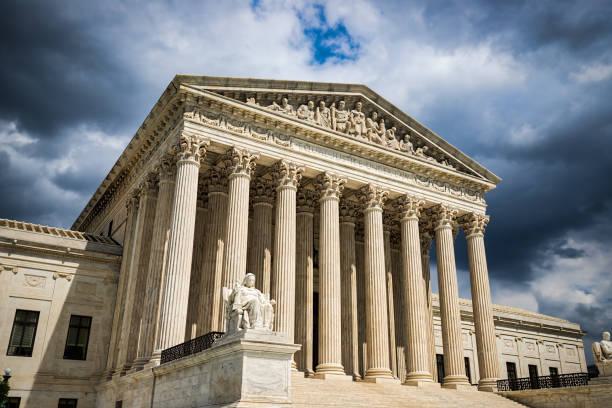On Tuesday, October 4, the U.S. Supreme Court will hear oral arguments on whether the people of Alabama, through their representatives, get to create their own congressional district maps or whether the ACLU’s experts get to create them instead.
If you have not been following the news, here’s the gist: After Alabama received the results of the 2020 census, it redrew its congressional district maps to reflect population changes, as it is legally obligated to do. The map was very similar to the map we have used since the 1990s, reflecting only minor changes.
However, the ACLU sued, claiming that the new map violated Section 2 of the Voting Rights Act. A three-judge panel agreed with the ACLU and ordered the Alabama Legislature to redraw its maps before the primary. The Alabama Attorney General’s Office immediately asked the U.S. Supreme Court to step in, and the Alabama Center for Law and Liberty provided amicus support. The Court ruled 5-4 that Alabama did not have to redraw its maps before the primaries. However, on Tuesday, the Court will be considering the merits of the case.
The Voting Rights Act was passed in the 1960s to address real instances of racial discrimination that prevailed at the time. Even today, if a voting scheme was set up to intentionally discriminate against people based on the color of their skin or if it engaged in real racial gerrymandering, then such a scheme would doubtless be unconstitutional. However, in this case, the ACLU is not (to my knowledge) arguing Alabama is intentionally discriminating against African-Americans. On the contrary, it is arguing that Alabama could create a second congressional district that is majority African-American but is choosing not to.
Does Section 2 of the Voting Rights Act require the states to create congressional districts based on racial demographics?
No, it doesn’t.
Section 2 of the Voting Rights Act provides in subsection (a) that no “voting qualification or prerequisite to voting or standard, practice, or procedure” shall be imposed or applied in any that results in abridgment of the right to vote on account of race. The statute then explains in subsection (b) that a violation of that rule occurs, among other instances, when people in a racial minority “have less of an opportunity to elect representatives of their choice.” Based on subsection (b), the Supreme Court began holding that states sometimes have to create majority-minority districts. That’s how the ACLU was able to challenge Alabama’s new map.
But is the Court’s interpretation of the statute sound? According to Justice Clarence Thomas, who until the recent appointment of Justice Jackson had been the Court’s only black justice since the early 1990s, the answer is no. As he argued in a 1994 concurrence in Holder v. Hall, “the size of a governing body” such a congressional district “is not a standard, practice, or procedure” within the terms of Section 2. Justice Thomas argued that taken as a whole, Section 2 applies only to “conditions or tests applied to regulate citizens’ access to the ballot box.” As a matter of statutory interpretation, I think Thomas is right.
Lest this sound like a legal academic matter, here’s why Thomas cares so much about getting Section 2 right: This faulty interpretation of Section 2 requires the State to engage in racial discrimination with how it draws its congressional maps. Since racial discrimination caused so much evil in American history, why would we now think that some forms of racial discrimination are OK? As Chief Justice Roberts has argued, isn’t the “way to stop discrimination on the basis of race to stop discriminating on the basis of race?” As Justice Thomas said in Holder, the notion that we should engage in some forms of discrimination “should be repugnant to any nation that strives for the ideal of a color-blind Constitution.” ACLL agrees with Justice Thomas, and we filed an amicus brief arguing these points.
The fact that five justices stepped in and stayed the lower court’s decision is a sign that the Court is likely to rule in Alabama’s favor. Even Chief Justice Roberts, who dissented from issuing the stay, thought that Alabama might prevail at the merits stage. I wish the best of luck to my friend Eddie LaCour, who will be arguing for the State.
My hope is the Court will correct the errors it has been making with the Voting Rights Act or, at the very least, not extend them to force Alabama to redraw its congressional map according to the will of the ACLU instead of the will of the people.
Matt Clark is the President of the Alabama Center for Law and Liberty, a conservative nonprofit law firm that fights for limited government, free markets, and strong families in the courts. His column appears every Friday in 1819 News. The opinions expressed in this column are those of the author. The views and opinions expressed here are those of the author and do not necessarily reflect the policy or position of 1819 News. To comment, please send an email with your name and contact information to Commentary@1819News.com.
Don’t miss out! Subscribe to our newsletter and get our top stories every weekday morning.










